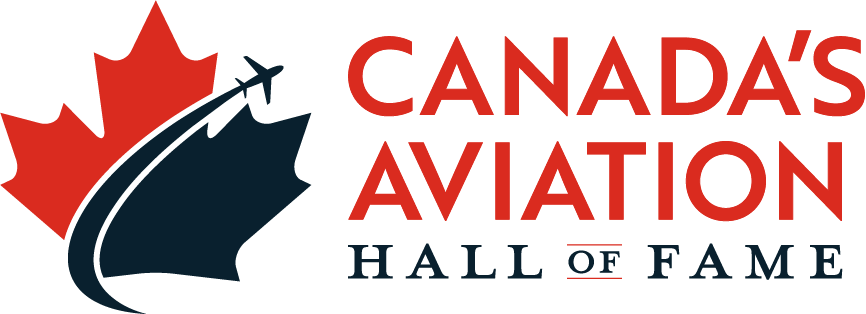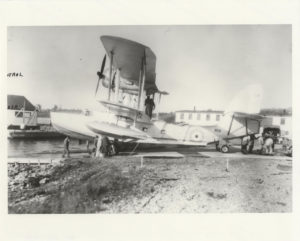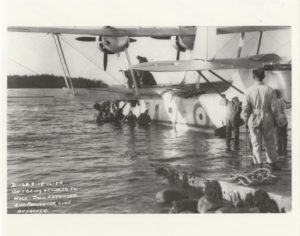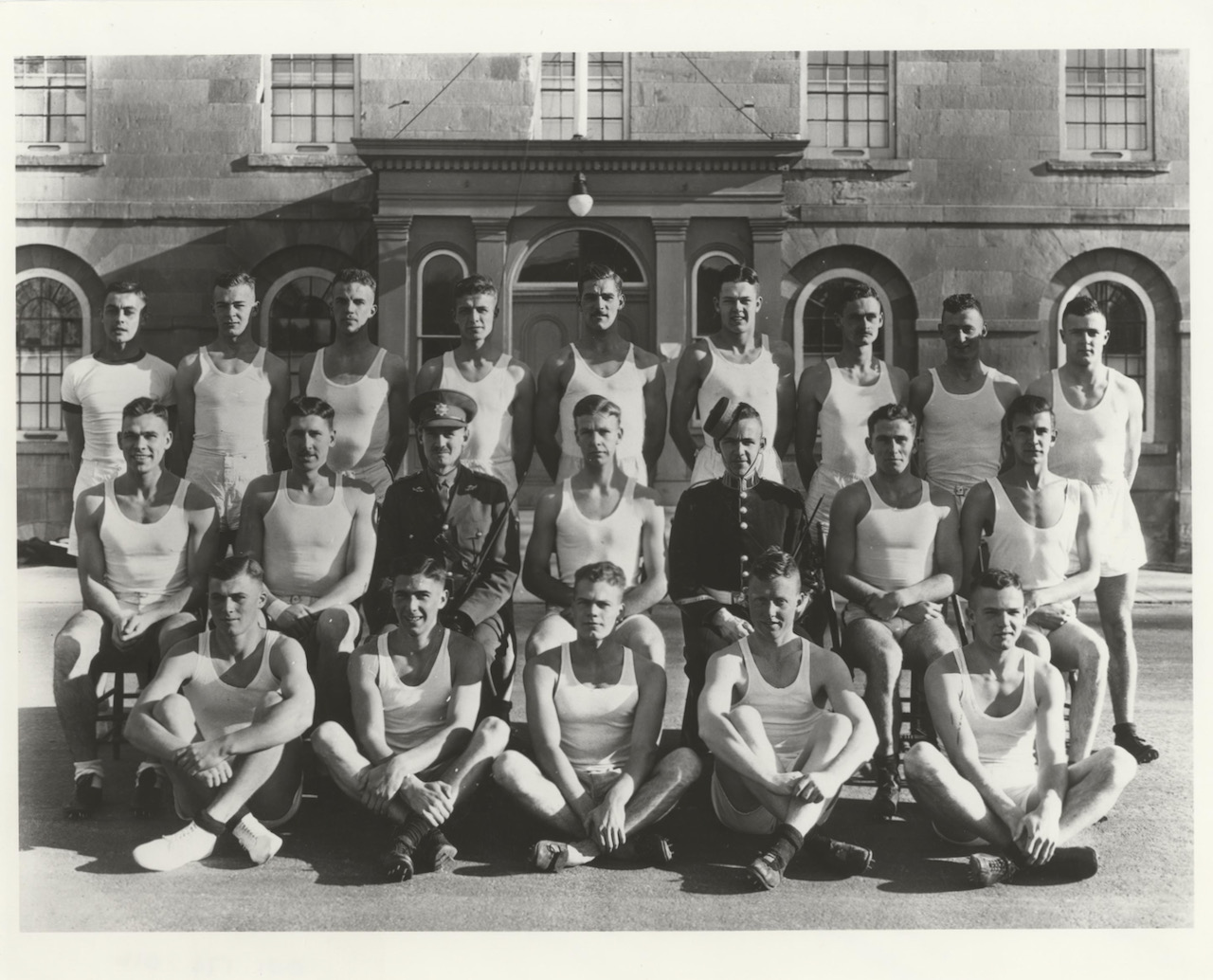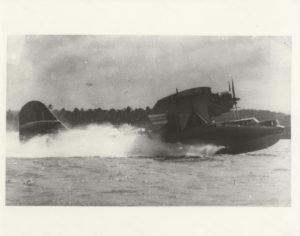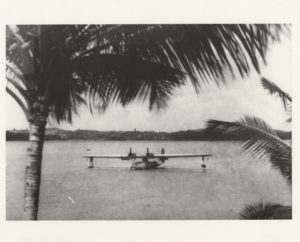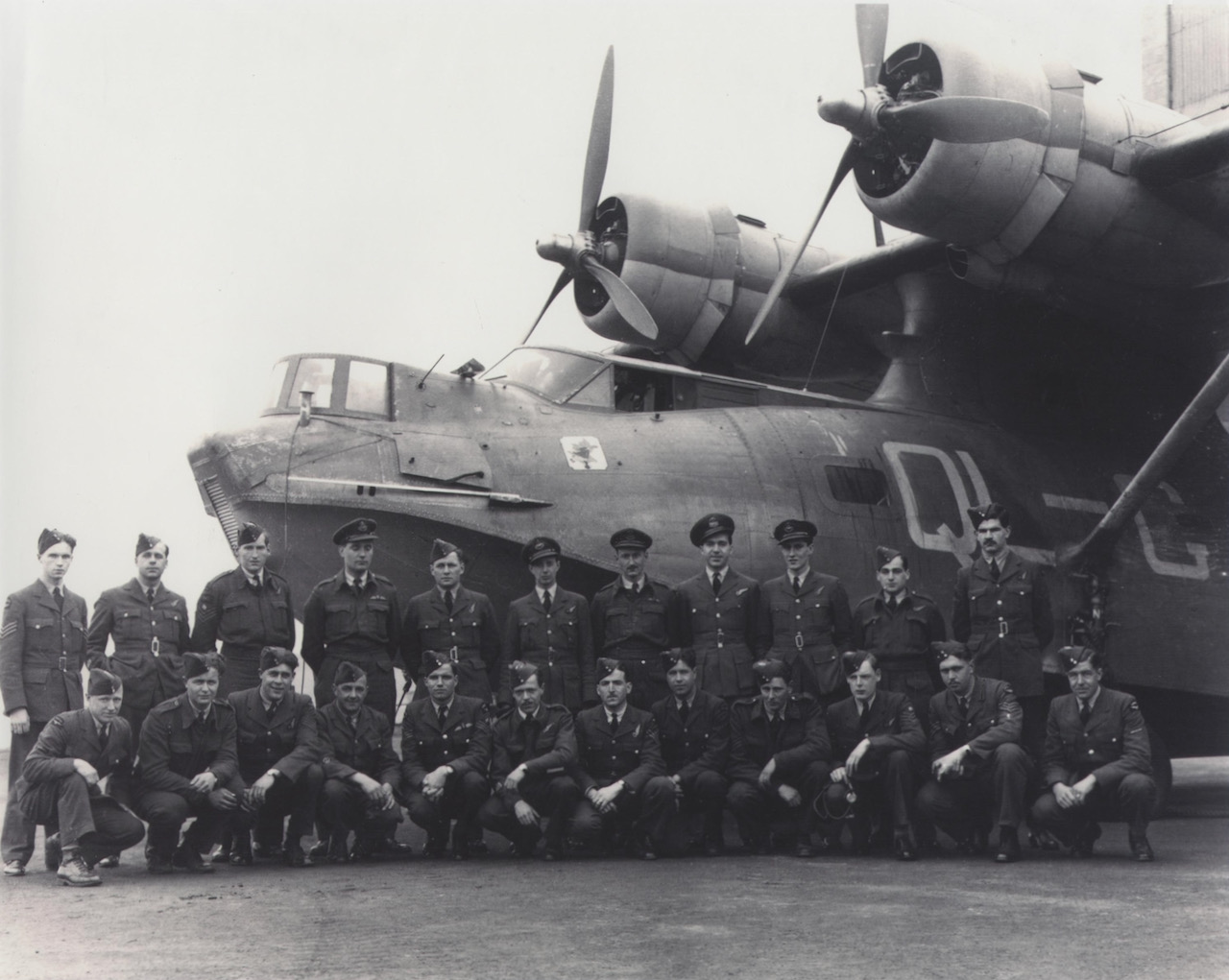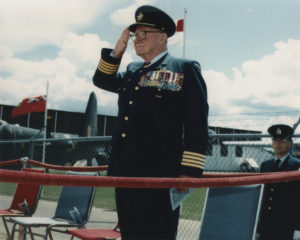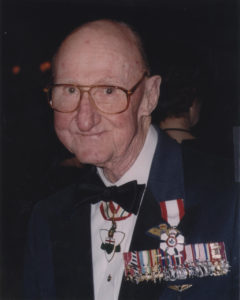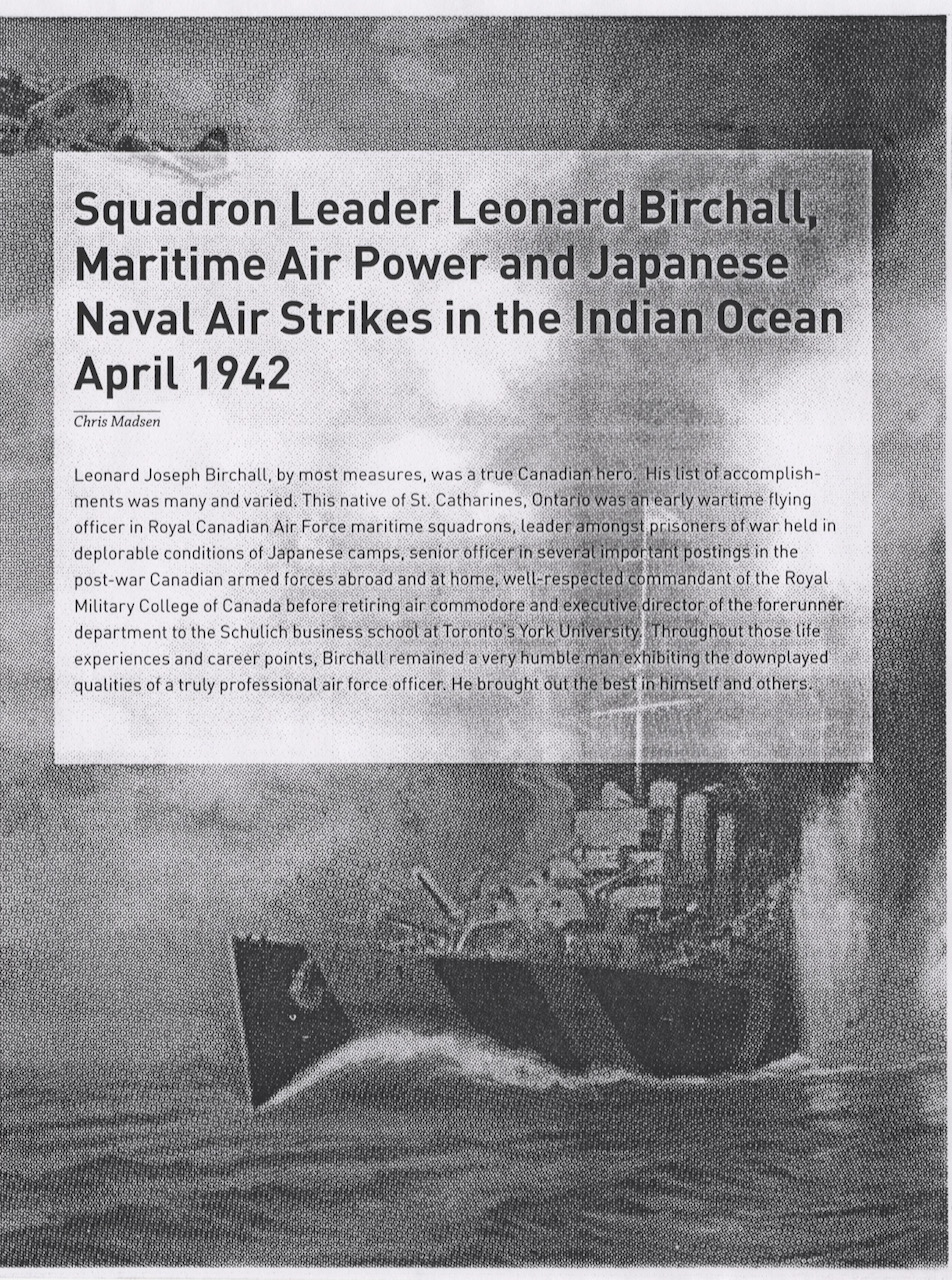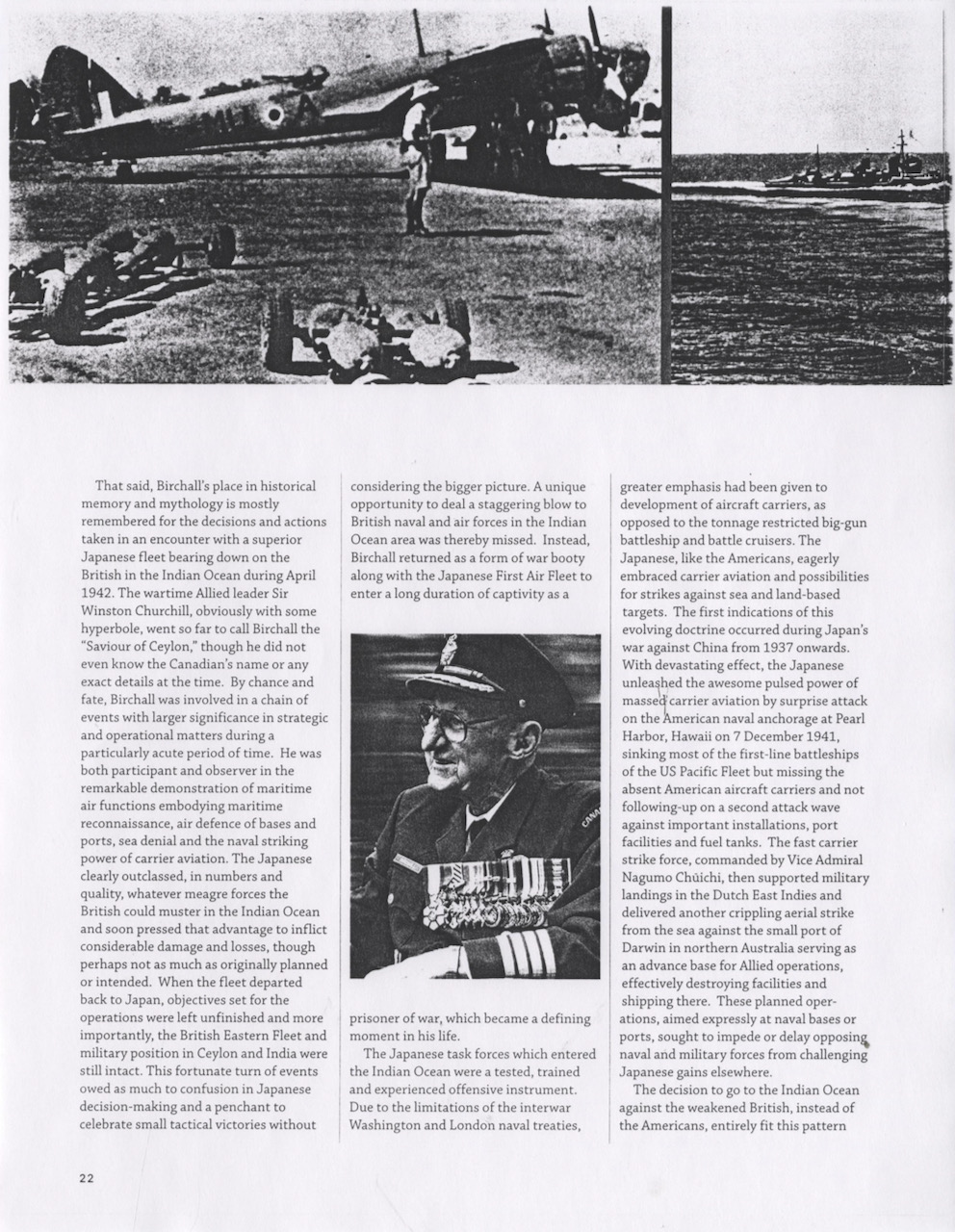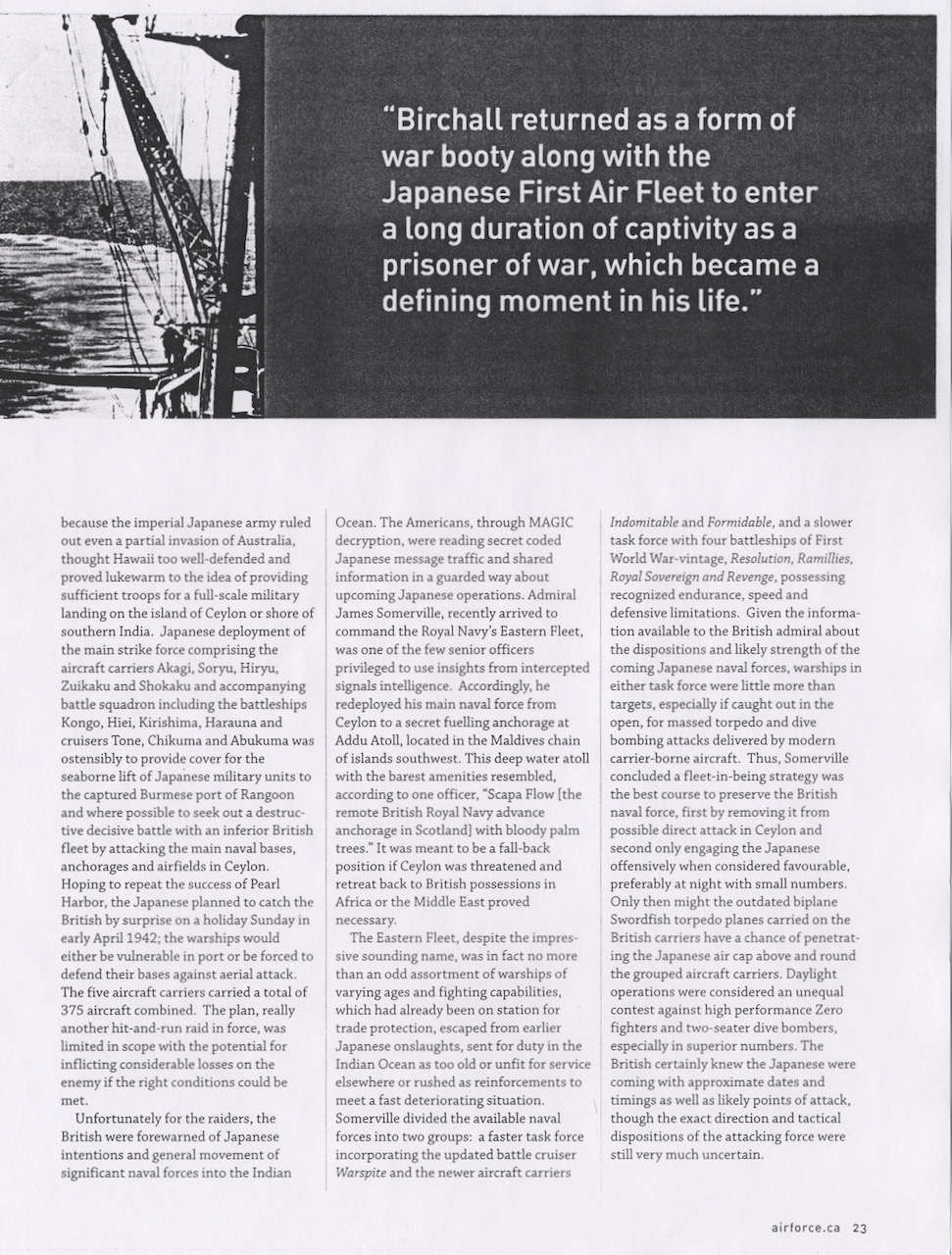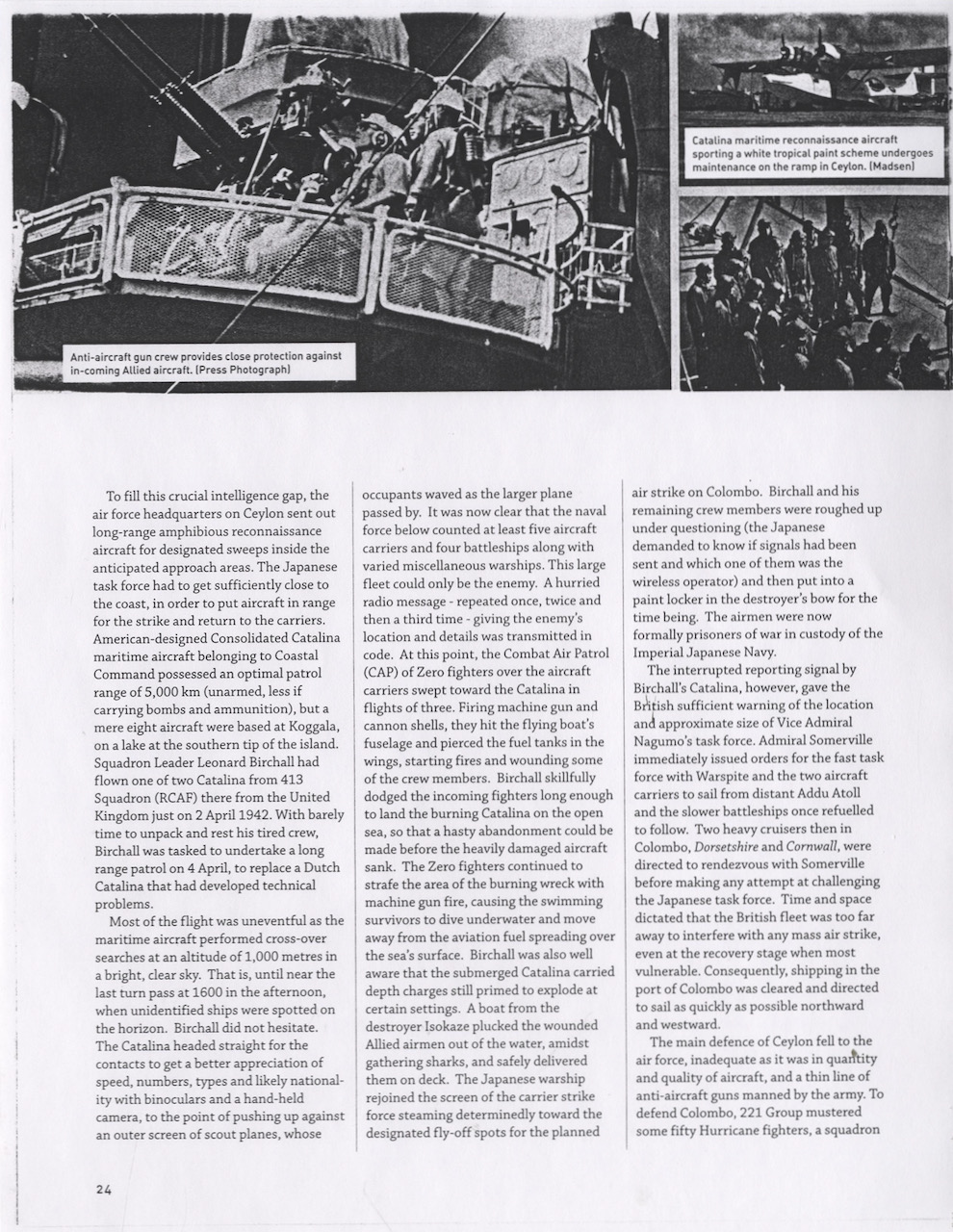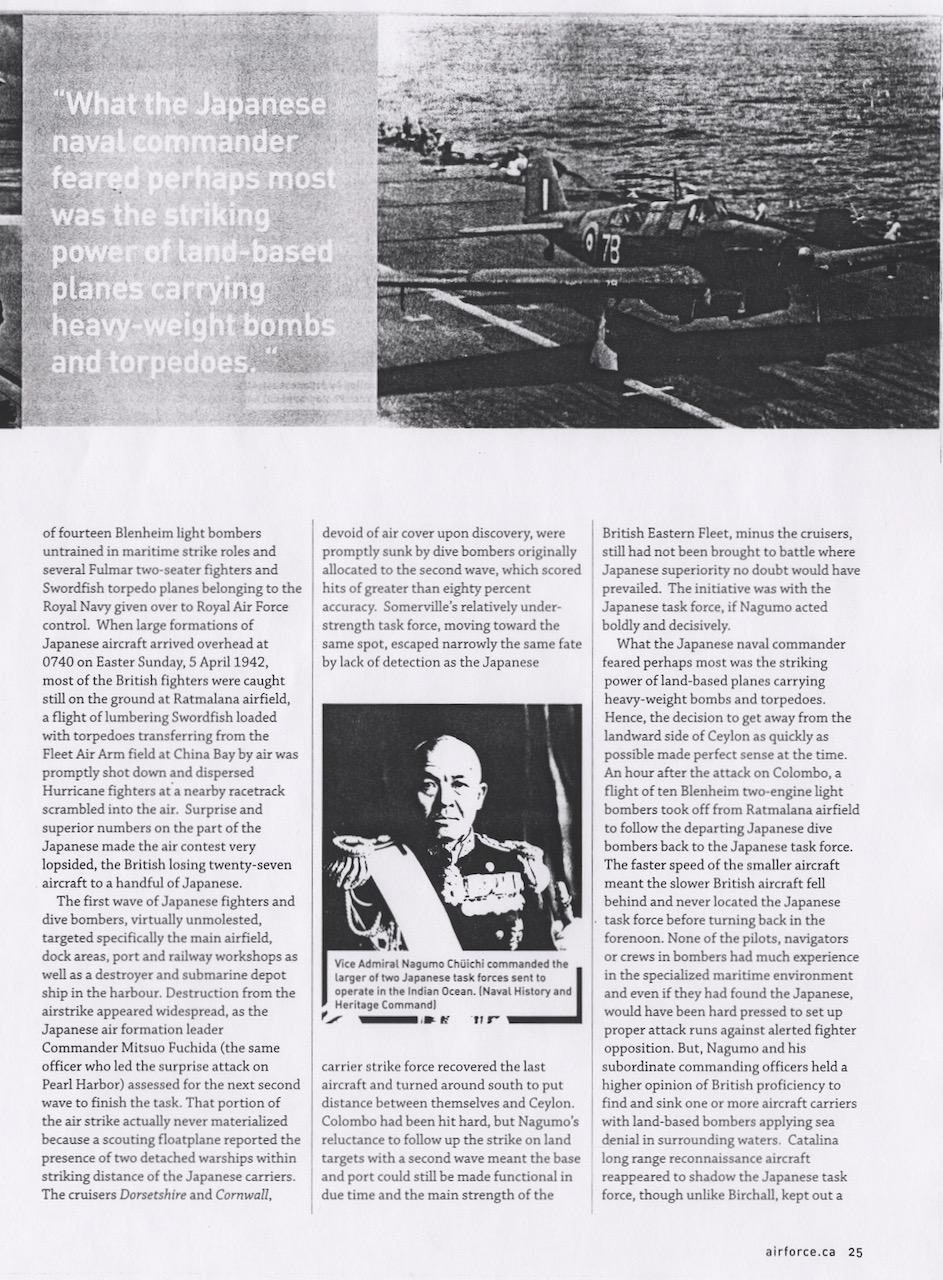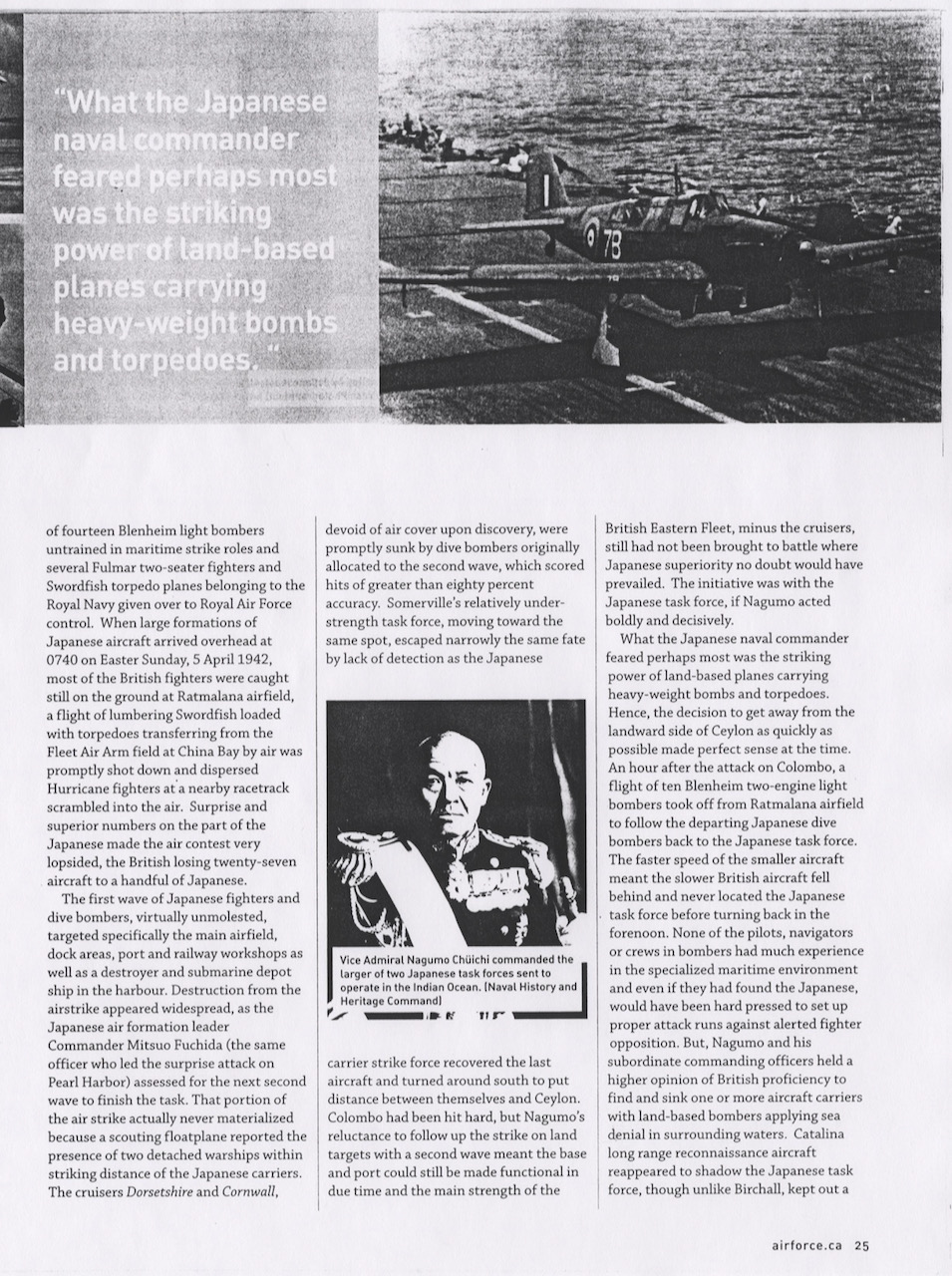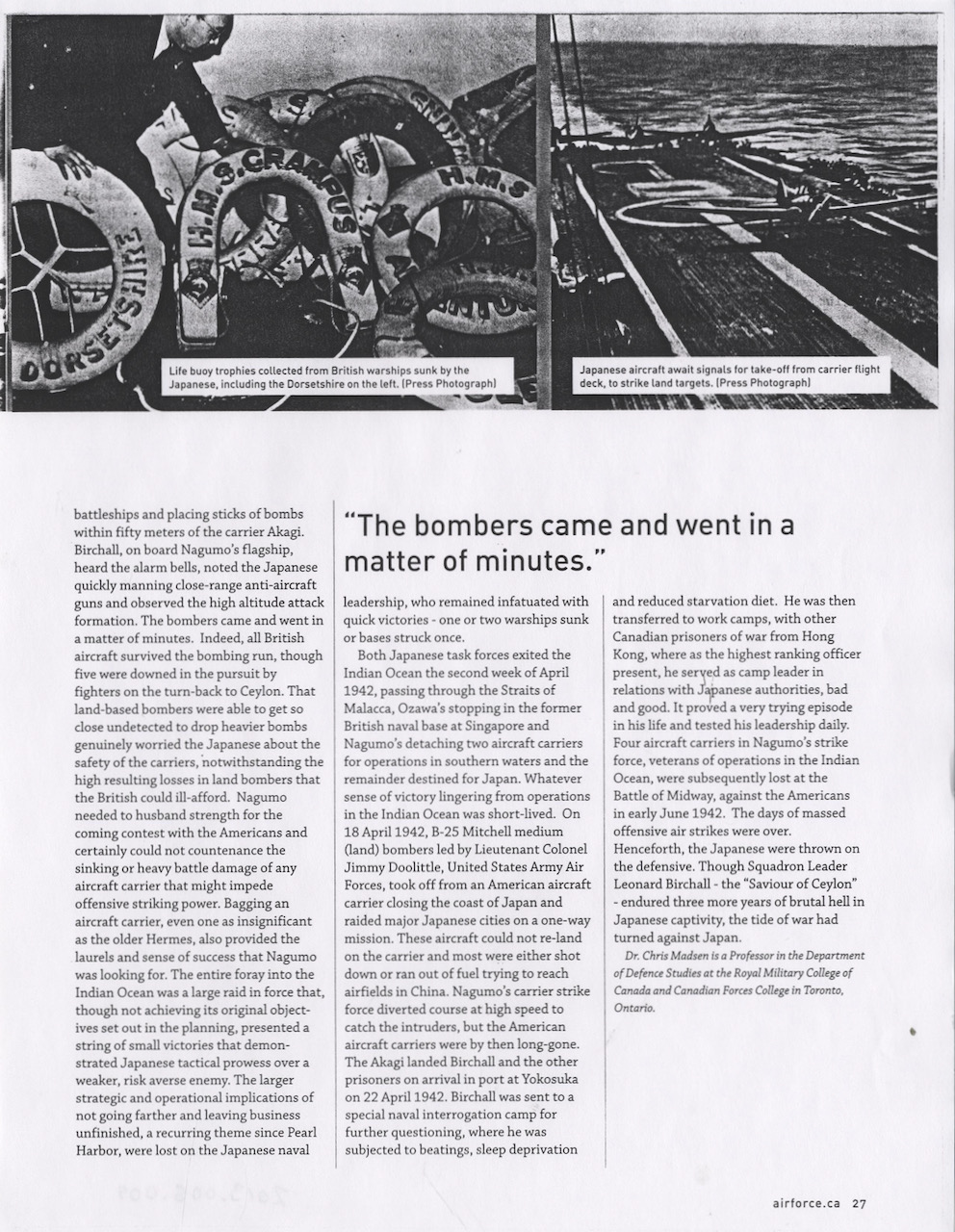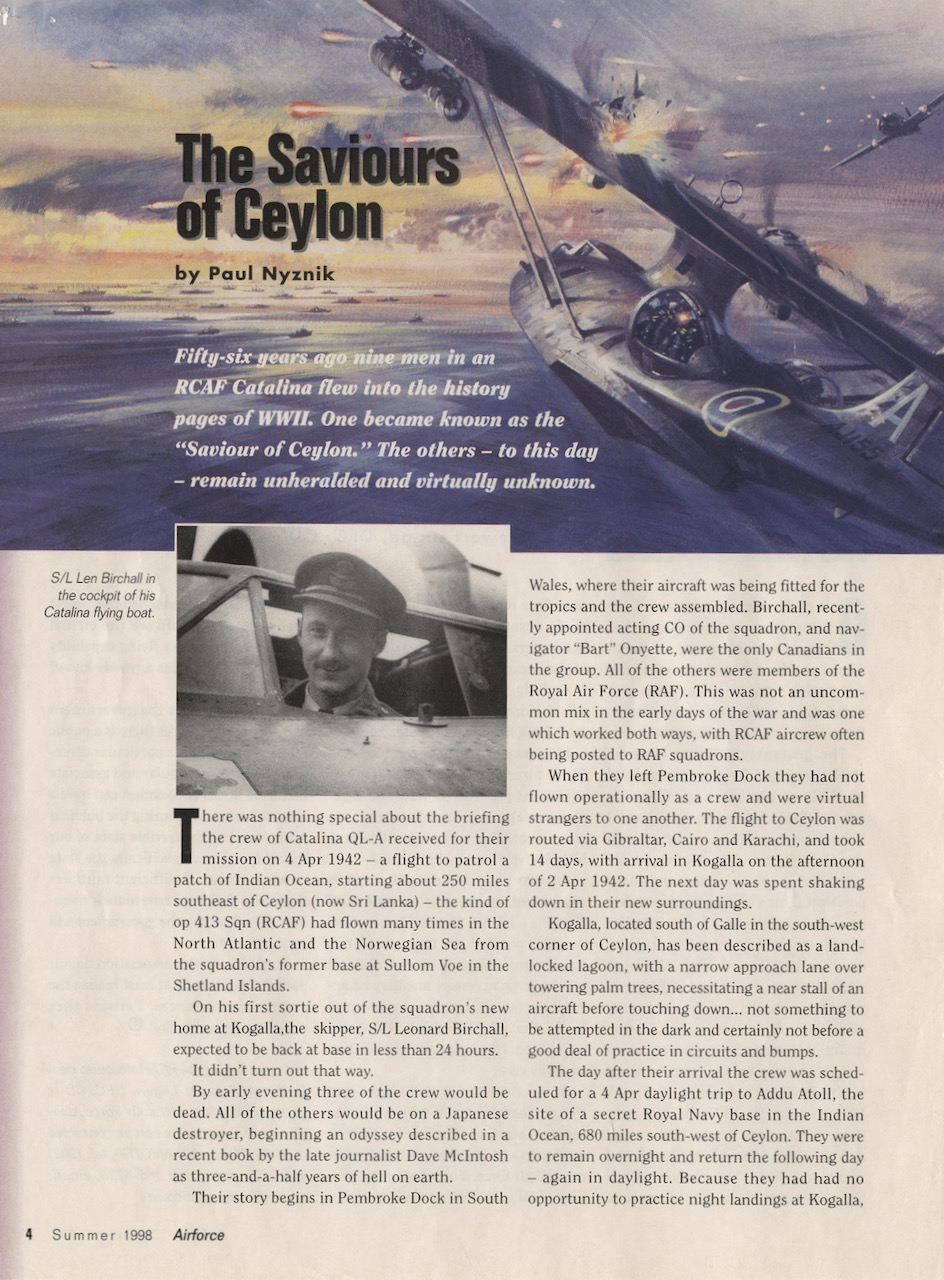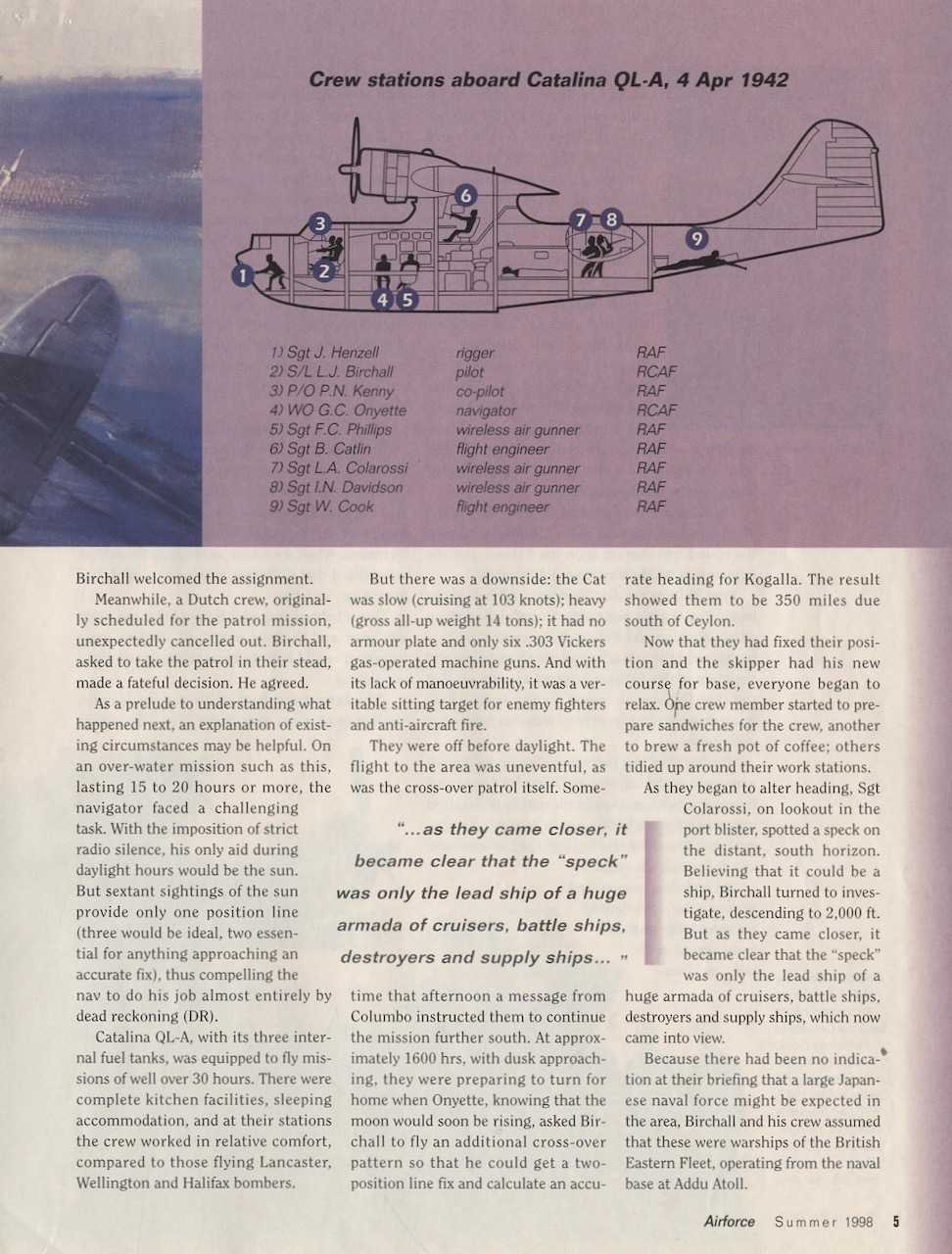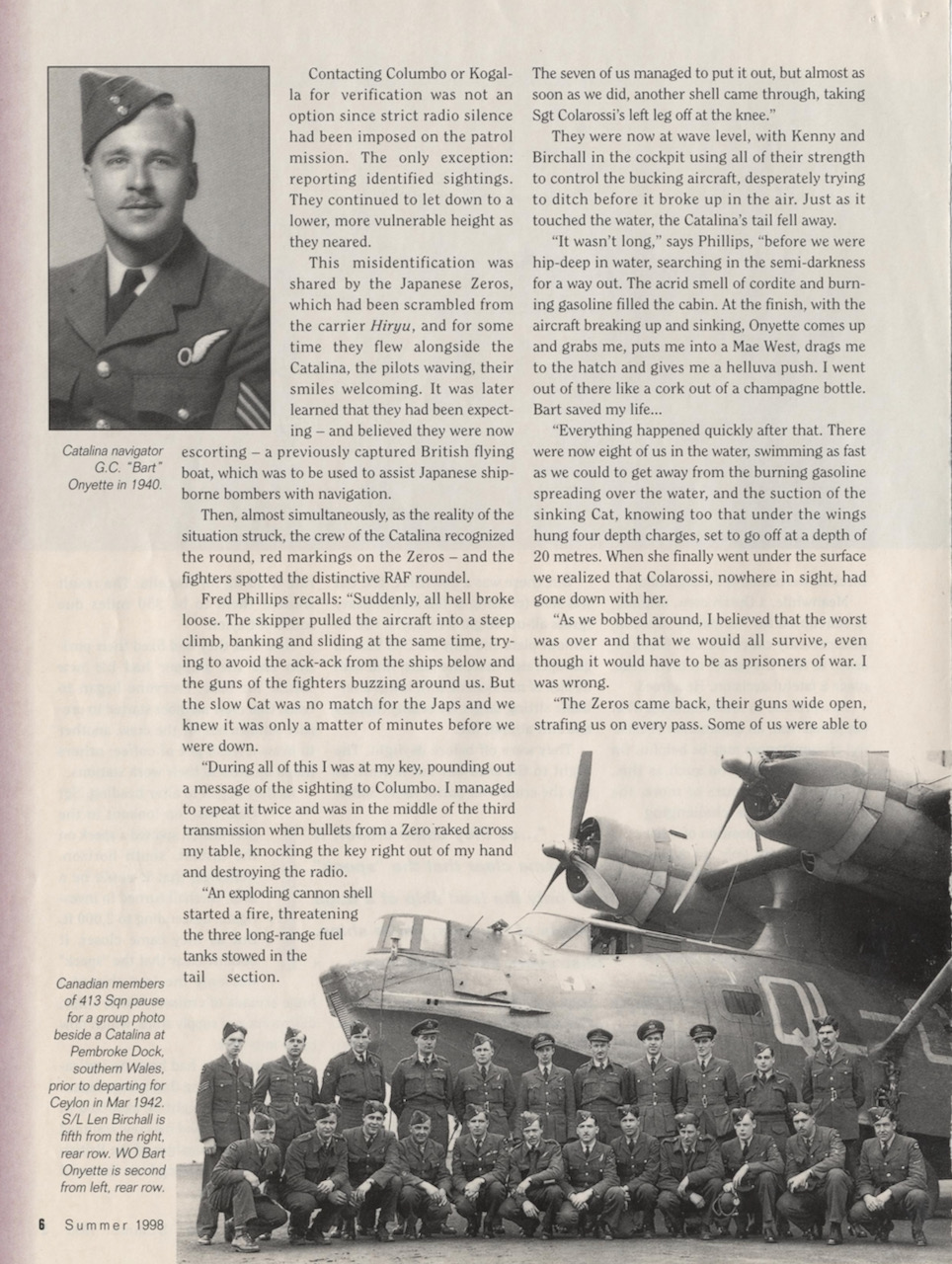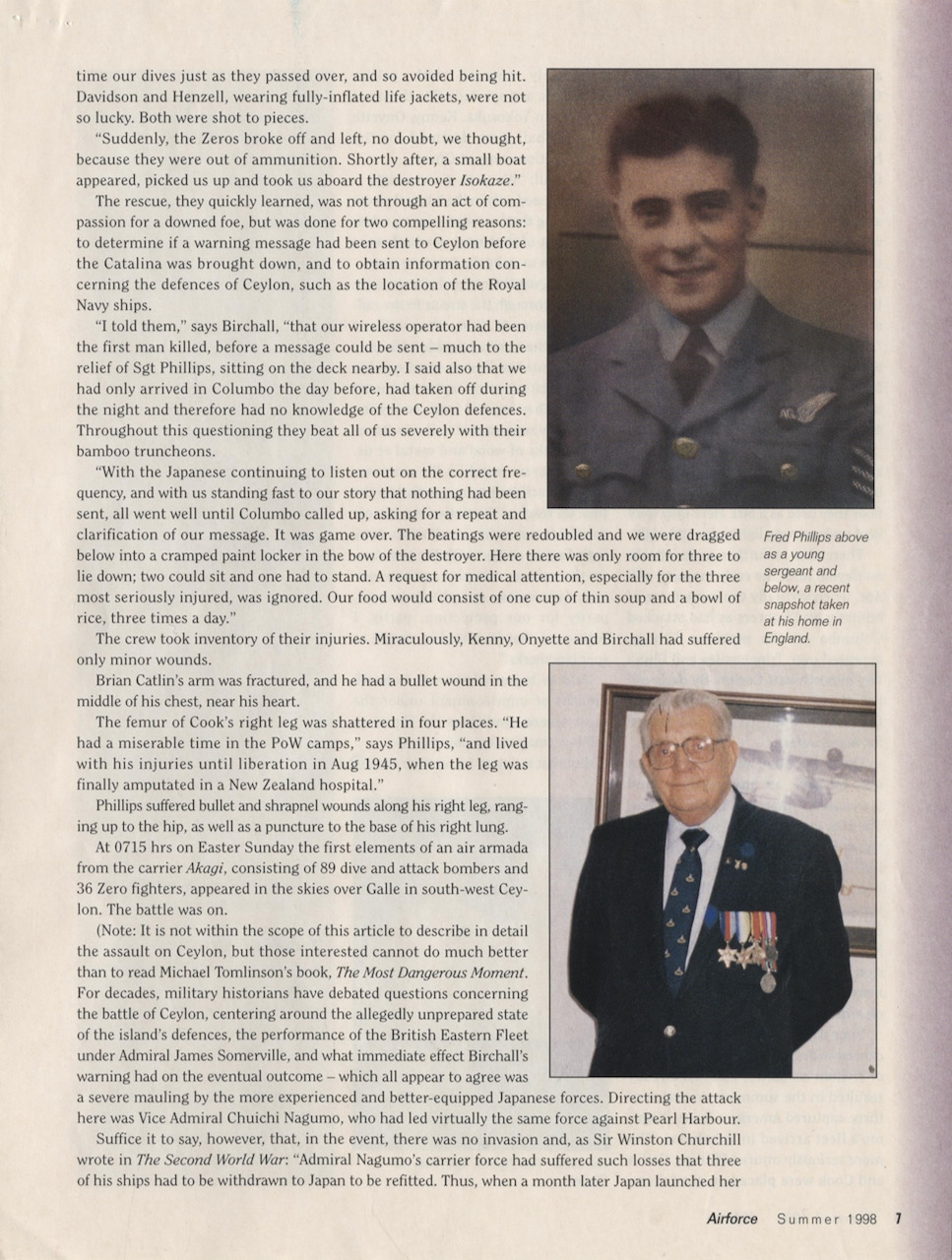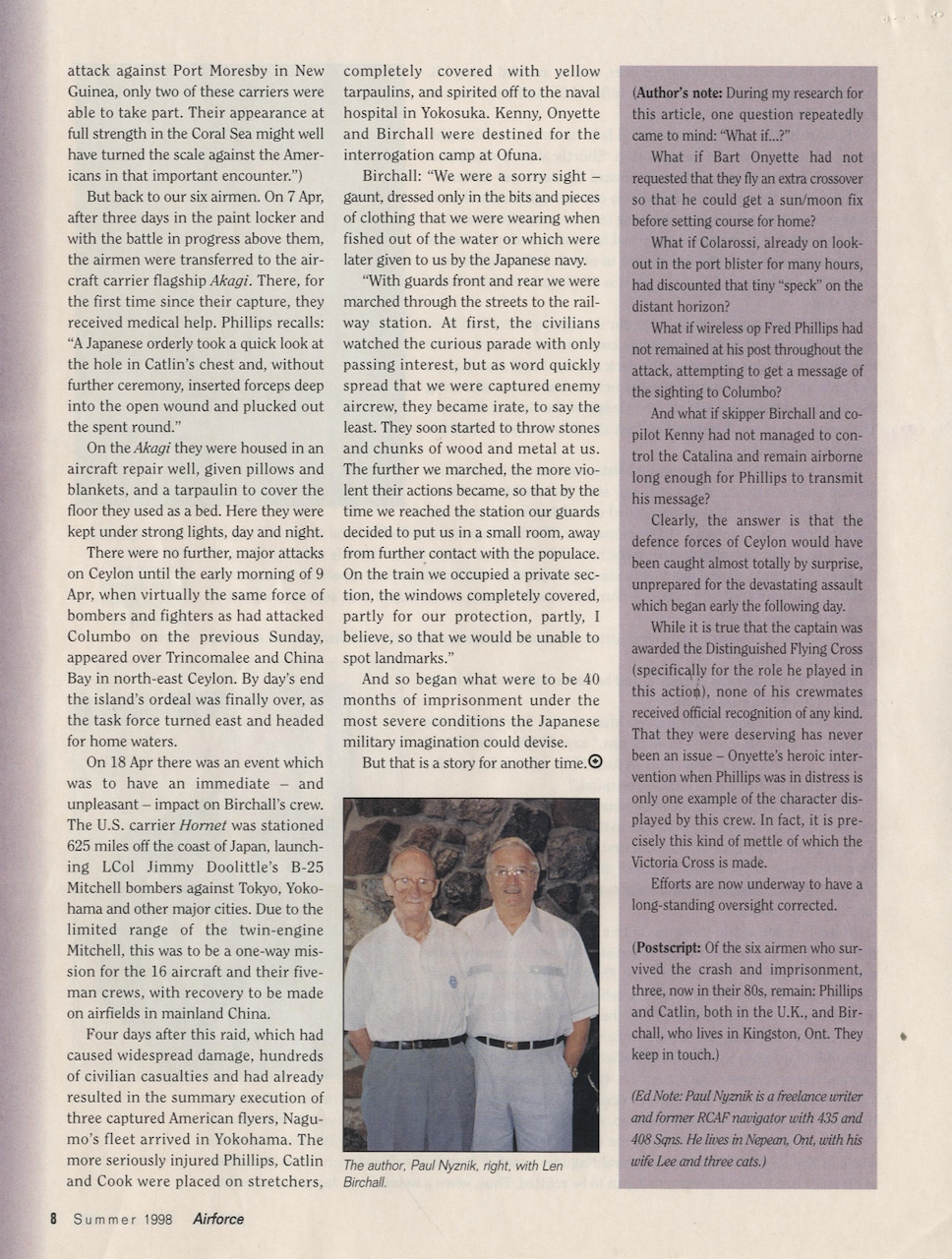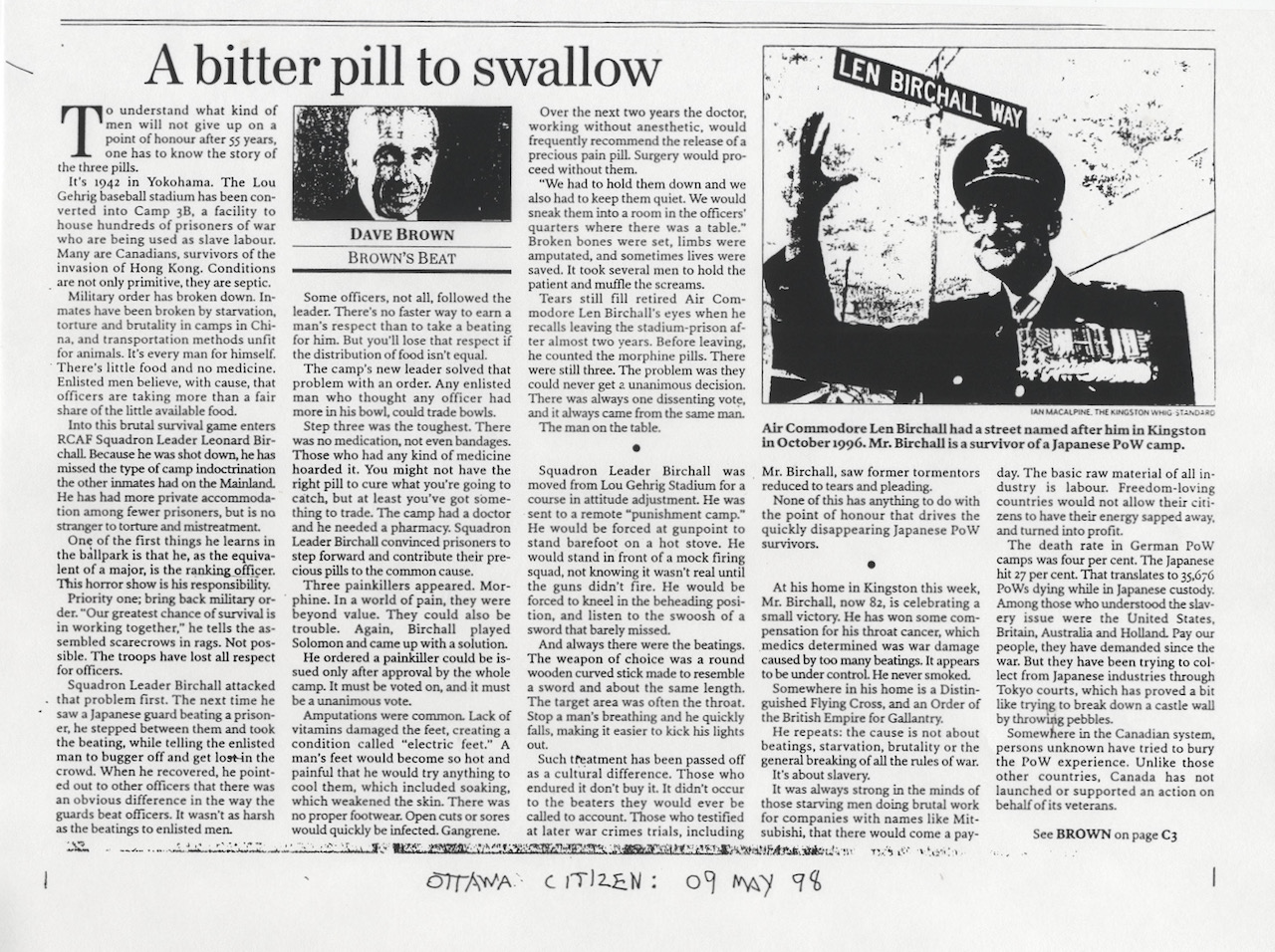Leonard Joseph Birchall
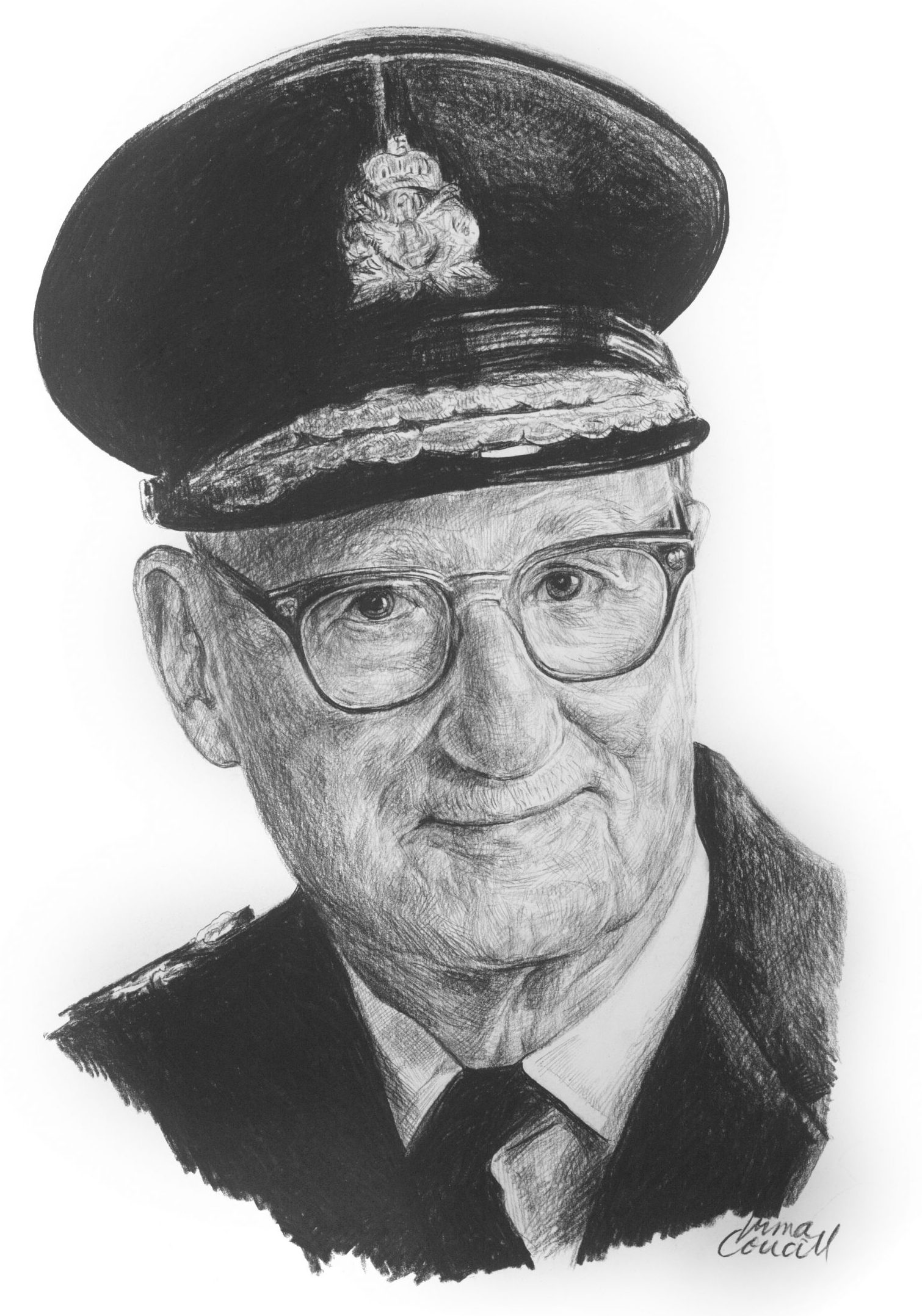
Birth Date: July 6, 1915
Birth Place: St. Catherines, Ontario
Death Date: September 10, 2004
Year Inducted: 2001
Awards: CM; OBE; DFC; CD*****; Order of Ontario; OC
His complete dedication, in unbroken military service of over six decades, has inspired untold thousands of Canadian youth. His tireless and unselfish contributions to his community, his country and his fellow man, in war and in peace, have been of outstanding benefit to Canada and Canadians
World War II
Leonard Joseph Birchall, CM, OBE, DFC, O.Ont, CD*****, was born July 6, 1915 and raised in St. Catherines, Ontario. He attended Royal Military College and upon graduation in June 1937, he was commissioned in the Royal Canadian Air Force. At the outbreak of World War II, he was flying defensive patrols in Stranraer flying boats out of Dartmouth, Nova Scotia. In December 1941 he was based in the Shetland Islands and equipped with Catalina flying boats. The squadron carried out patrols off the coast of Norway, Allied Commando raids on the outlying islands, provided coverage for the convoys to Murmansk, as well as anti-submarine and shipping patrols.
To beach the Stranrear we had to fasten large wheels on each side and this was done manually. The technicians had to wear diving suits as they were up to their necks in water. After the large wheels were attached you put a small cradle with wheels on it under the tail. A tracker was used to pull the aircraft up the slipway.
Transfer for Ceylon
The squadron was transferred to Ceylon in early 1942 with Birchall, who was a Squadron Leader and Deputy Commander, flying one of the lead aircraft. Arriving at Lake Koggala, south of Galle, Ceylon, now Sri Lanka, on April 2, 1942, he and his crew were given a 24-hour rest. The crew of nine then took off in the pre-dawn hours of April 4 to carry out an all-day patrol southeast of Ceylon in search of submarines and ships. Near the end of their patrol, they sighted the Japanese Navy fleet streaming toward Ceylon preparatory to launching a surprise attack on Colombo, Ceylon, similar to the attach this fleet had carried out on Pearl Harbour on December 7, 1941.
They immediately sent off a signal giving speed, course and composition of the fleet before their Catalina was shot down by fighter aircraft launched from the Japanese aircraft carriers. Their signal gave the Allies time to make preparations to protect Ceylon against the impending air attacks which took place during the following days. The result was that British Far East naval fleet was able to avoid destruction. The Allies were also able to defend the island of Ceylon, inflicting severe losses on the Japanese naval aircraft. For this particular action, Birchall was awarded the Distinguished Flying Cross and the title of "Saviour of Ceylon".
Back Row (L - R): Sgt. T.C. Kelly, W/O G.C. Onyette, F/Sgt R.G. Shaw, P/O G.H. Bayly, P/O G. Vivian, P/O E.T. Loomer, S/Ldr L.J. Birchall, P/O T.A. Steckland, P/O E.H. Walsh, P/O A. Vineberg, Sgt B.A. Robertson.
Front Row (L - R): LAC G Setterfield, AC1 R.I. Haugen, Sgt B.C. Callaway, W/O W.F. Johnson, F/Sgt H. Burt-Gerrano, W/O G. Chelsey, F/Sgt G. Low, Sgt C. Kensit, Sgt P. Garroway, F/Sgt W. Robertson, Sgt F.W. Ferris, LAC L.T. Sawyer
Group photo taken at Pembroke Dock. Aircraft belongs to Birchall.
"The aircraft is my aircraft "G" for George, with the crest on the side, just below the cockpit window"
Japanese POW
Picked out of the water by the Japanese Navy, he and the other five surviving members of the crew were taken to Japan and placed in prisoner-of-war camps. Birchall's conduct during these three and a half years as a POW resulted in his being awarded the Order of the British Empire for Gallantry.
The citation for his award reads in part:
"As senior Allied Officer in the camps in which he was located he continually displayed the utmost concern for the welfare of his fellow prisoners. On many occasions, with complete disregard for his own safety, he prevented, as fas as possible, Japanese officials from sadistically beating his men and denying prisoners the medical attention which they so urgently needed."
After the War
Following the war, Birchall was stationed in the Directorate of Personnel at RCAF Headquarters. He was then sent back to Japan on secondment for three months to be an integral member of the Prosecution Team at the Japanese War Crimes Trials. Upon his return he held many noteworthy appointments. Significant among them was Air Attache for Canada in Washington, USA. There he was highly involved with Canada's participation in the formation of NATO (North American Treaty Organization) and NORAD (North American Air Defence Agreement). As a result of his work with the USAF he was awarded the United States Legion of Merit and made an Honourary Life Member of the USAF Association.
Further Appointments
Further appointments of high responsibility followed such as Commanding Officer Goose Bay, Labrador, where he specialized in carrying out mercy missions to the Arctic; Senior Personnel Staff Officer Air Materiel Command, Ottawa; Military Advisor to the Canadian Ambassador at NATO Headquarters, Paris, France; attending National Defence College, Kingston, Ontario; Commanding Officer RCAF Station North Bay, Ontario, where he became combat ready on the CF-100 All-Weather Fighter aircraft. Because of his active participation in flying, he was brought back to DND HQ Ottawa as an Air Commodore and given the position of Chief of Air Operations, RCAF.
He was posted in 1963 back to Kingston as Commandant, Royal Military College, for four years. At the end of this posting he was retired from the RCAF Permanent Force. A few years after leaving the college, in recognition of his outstanding work as Commandant, RMC conferred on him the degree of Doctor of Military Science, Honoris Causa.
Upon leaving the RCAF Permanent Force in 1968, Birchall joined York University, Toronto, as Chief Executive Officer for the Faculty of Administrative Studies. He held this position for fourteen years and a year after his retirement, because of his outstanding contribution to the University, he was awarded the degree of Doctor of Laws, Honoris Causa.
Return to the RCAF
Immediately after his arrival in Toronto in 1967, he returned to the RCAF, this time as Honourary Lieutenant Colonel of No. 400 "City of Toronto" Air Reserve Squadron. Shortly thereafter he was promoted to Honourary Colonel. During his twenty-two years with No. 400 Squadron, he was very active in the Council of Air Honouraries. He was instrumental in drawing up the Terms of Reference for the Air Honouraries and the creation of the Association of Air Honouraries, where he served as President for eight years.
During his tour of duty with No. 400 Squadron, Birchall completed fifty-two years of service with the Canadian Forces and was the fourth Officer in the Canadian Forces and the first in the Air Force to receive the fourth bar to the Canadian Forces Decoration.
Retirement
He retired from York University in 1981 and moved in Kingston, Ontario. He continued his work with the military and also became involved in local volunteer work. In recognition of his outstanding contributions, not only in the military but also in Ontario and Canada as a whole, in April of 1989 Birchall was awarded The Order of Ontario.
That same year he was retired as Honourary Colonel of No. 400 Squadron and immediately appointed Honourary Colonel of the Permanent Force No. 413 (Transport and Rescue) Squadron in Greenwood, Nova Scotia. This is the squadron in which he served in the Shetland Islands and Ceylon during the War. His first objective was to arrange for and erect a memorial at the Sri Lanka Air Force Base, Koggala, Sri Lanka, in honour and memory of all the men serving with the squadron at that base and who were killed there during the war.
On April 21, 1996, Air Commodore Birchall completed sixty-two years service with the Canadian Armed Forces and was the only member of the Canadian Forces ever to receive the fifth bar to the Canadian Forces Decoration. This bar was presented to him at an investiture at Rideau Hall in Ottawa by Governor General Romeo LeBlanc on February 5, 1997. At the same ceremony, the Chief of Defence Staff awarded him the Canadian Forces Medallion for Distinguished Service.
On February 9, 2000 the Canadian Government paid tribute to Birchall by conferring upon him the Order of Canada. Leonard Birchall dies September 11m 2004 at Kingston, Ontario.
Leonard Joseph Birchall was inducted as a Member of Canada's Aviation Hall of Fame in 2001 at a ceremony held in Ottawa, Ontario.
News Stories
To return to the Inductee Page, please click here.
